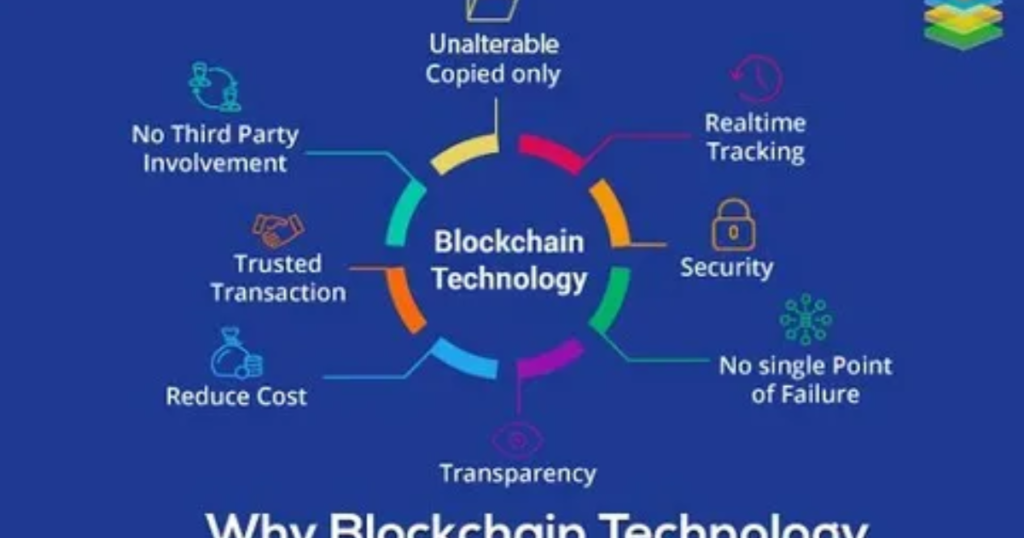Block chain is transforming how intellectual property (IP) rights are protected and managed. This decentralized technology ensures transparency, security, and traceability, making it harder for unauthorized use or duplication of creative works. By creating immutable records, block chain offers creators a reliable way to prove ownership and manage their IP.
From music and art to patents and trademarks, block chain is empowering innovators to safeguard their ideas. Smart contracts automate licensing agreements, while NFTs (non-fungible tokens) give creators a new way to monetize digital assets. This revolution is reshaping IP protection, fostering trust and innovation in the digital age.
The Role of Block chain in Intellectual Property Rights
Block chain provides a secure and transparent way to protect intellectual property. By creating tamper-proof records, it ensures proof of ownership and simplifies IP management. Smart contracts help automate licensing, making transactions faster and more reliable. This technology reduces disputes, giving creators better control over their work in a digital world.
Challenges in Enforcing Intellectual Property Rights

Enforcing IP rights remains complex due to global regulations and digital piracy. Many creators face difficulties tracking unauthorized use of their work. High legal costs and lack of awareness further complicate enforcement. While blockchain offers solutions, adoption challenges and integration with existing laws must still be addressed.
Revolutionizing Authorization and Authentication: The Power of Blockchain Technology
Block chain is redefining how authorization and authentication processes work. It provides a decentralized and tamper-proof system for verifying identities and access. Unlike traditional methods, block chain eliminates intermediaries, reducing fraud and enhancing security.
With smart contracts, access permissions can be automated and tracked transparently. Block chain ensures that sensitive data is protected, making it ideal for industries like finance, healthcare, and cyber security. This innovation is setting new standards for trust and efficiency in digital interactions.
Understanding Intellectual Property Rights in the Digital Age

In the digital age, protecting intellectual property (IP) is more critical than ever. With the rise of online platforms, creative works are easily shared, copied, or stolen. This has led to a growing need for better tools to safeguard ownership and usage rights. Traditional IP protection methods often fall short in the face of digital challenges.
Block chain Basics: How It Works in IP Protection
Block chain creates an unchangeable record of ownership and transactions. For IP protection, it acts as a digital ledger to track and verify creators’ rights. Each entry is time stamped and encrypted, ensuring accuracy and security. This eliminates disputes by providing clear proof of ownership.
The Role of Smart Contracts in IP Licensing and Management
Smart contracts automate the enforcement of IP agreements. They define terms like usage rights, royalties, and timeframes. Once conditions are met, the contract executes automatically. This reduces manual work, speeds up transactions, and ensures creators are compensated fairly.
NFTs: A New Frontier for Creative Rights Protection
Non-fungible tokens (NFTs) are transforming digital ownership. They link a creator’s work to a unique, block chain-based token. This ensures authenticity and prevents duplication. Artists, musicians, and creators can monetize their work while retaining control over distribution.
Tackling Counterfeiting with Block chain Technology

Counterfeiting is a major issue in industries like fashion, pharmaceuticals, and luxury goods. Block chain combats this by providing transparent supply chain records. Consumers can verify product authenticity by tracing its journey on the block chain. This builds trust and reduces fake goods in the market.
Enhancing Transparency in IP Ownership and Transfer
Block chain fosters transparency by creating an open and accessible record of IP ownership. It tracks every transfer or sale of rights, ensuring accountability. Creators and buyers can view the entire history, reducing disputes and building trust in transactions.
| Understanding Intellectual Property Rights in the Digital Age | IP rights ensure creators protect their work from theft or misuse. Digital platforms demand stronger protections. |
| Block chain Basics: How It Works in IP Protection | Block chain stores ownership records in a tamper-proof ledger. It provides clear proof of IP rights and transactions. |
| The Role of Smart Contracts in IP Licensing and Management | Smart contracts automate agreements like licensing or payments. They execute instantly when terms are met. |
| NFTs: A New Frontier for Creative Rights Protection | NFTs link unique tokens to digital assets, proving authenticity. Creators can monetize while retaining ownership. |
| Tackling Counterfeiting with Block chain Technology | Block chain tracks product origins, verifying authenticity. It reduces fake goods in industries like fashion or tech. |
| Enhancing Transparency in IP Ownership and Transfer | Block chain creates an open record of IP transactions. This builds trust and reduces ownership disputes. |
FAQ”s
How does block chain protect intellectual property rights?
Block chain secures IP by creating tamper-proof, time stamped records of ownership. It ensures transparency and reduces disputes over rights.
What is the role of smart contracts in IP management?
Smart contracts automate licensing, royalties, and agreements. They execute terms automatically, ensuring faster and fair transactions.
How do NFTs help creators protect their digital assets?
NFTs link digital assets to unique block chain tokens, proving authenticity. This prevents duplication and allows creators to monetize securely.
Can block chain prevent counterfeiting in physical goods?
Yes, block chain tracks the supply chain, verifying authenticity at every step. Consumers can check if products are genuine through block chain records.
What are the challenges of using block chain for IP protection?
High costs, lack of global standards, and technical complexities are major hurdles. Wider adoption and integration are still evolving.
Conclusion
Block chain is revolutionizing intellectual property protection by providing secure, transparent, and tamper-proof records. It enables creators to prove ownership, manage licenses, and prevent counterfeiting. Smart contracts and NFTs are offering new ways to protect and monetize creative works. While challenges remain, such as global adoption and integration, blockchain’s potential to reshape IP rights management is undeniable. As technology evolves, it will continue to offer innovative solutions, making IP protection more efficient and reliable for creators worldwide.







